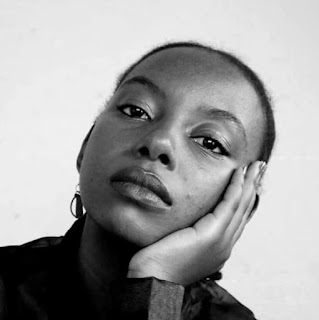At times there are small filmic miracles that chronicle some corner of creative realities experienced by some ladies in some country in Africa, and Lesotho is the mountain kingdom from which eagles, phoenixes rise from the jagged cliffs that home a myriad souls.
BIRDS OF A FEATHER is one such glance into the spirituality of sonic manifestations, that evolve in many young musician and creatives who are steeped in translating their cultural experiences through a multifloras lens.
Matlali Matabane is such an experimentalist, who once serendipity had chosen her an instrument, explored some inner personal transformations and turmoils as well as joys through chords and voice, serenading antiquated hills of the mountains of kingdom.
The sound emanating from the instrument wails of the traumas of a pst that still haunts our people and this documentary film is a record of the artist’s efforts to preserve heritage, told through astute eyes of incredibly unhinged cinematography, experimentalist and bordering on the avant-garde.
The documentary film, directed by the enigmatic Tsepiso Mahase, this cinematic journey is guided by womanhood who bears witness of travails of gender biases, hence the music, nearing hymnal renditions that required for religion but expressing a spirituality that unites all being like mycelium.
Having been recently screened at The Merafong Documentary Film Festival, the film resonated with audiences, as musicians, poets and social activists could relate to the efforts undertaken by the protagonist towards preservation of Basotho Musical Heritage.
The musical process documented through this film deploys spoken word poetry in imagery that account to experiences of Matlali, exquisitely globalising her experiences through a cinematic vocabulary that speaks to other people of the world who creatively strife for sonic inter-connected.
And there is indeed that power bestowed film which transcends space and time, where connections are woven efficiently between viewers and the creators of the visual experience itself, a sort of synergy of spirits which was expressed by well-enthused audiences captivated by the film’s vocality and expression beyond borders.
Matlali, as a sound scholar and artist living in Lesotho and South Africa, who is currently studying Music at Rhodes University, and through her explorative research and creative work she continues to excavate more synergies between electronic music and indigenous instrumentation fused with spoken word and performance art.
Interestingly, the Lesiba and other Basotho traditional sounds have haunted much of the Southern African landscape since time immemorial, but in the self-taught hands of artist Matlali Matabane, it has become an emancipatory tool essential for telling and breathing contemporary stories into unpredictable futures.
As an instrument synonymous with the solitude of herders and their personal contemplations, it is now shown in light of being a place of gender contestations and liberation, and this new evolution in the hands of femininity is proving richly endowed with winds of change capable of taking each feathered expression beyond the confines of borders, gender, race and social background.
The film is therefore a document of resilient craft nurtured in the most hostile space for creative output, where funding for film is virtually non-existent. It shows how young Basotho filmmakers are collaborating with their peers to create memorable and experimental works that bring new modes of social engagement.
The filmmaker Tsepiso Mahase


No comments:
Post a Comment